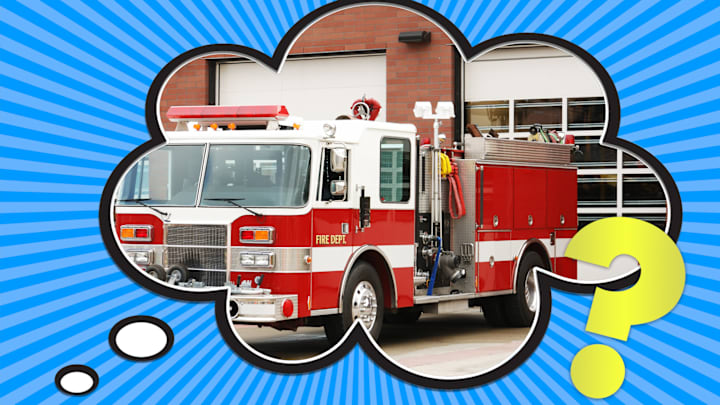The various duties of emergency services seem pretty clear. Someone breaking into your house? A police officer will show up. (Hopefully.) Kitchen ablaze? A fire truck will come screaming down the block. Medical emergency? Paramedics are on the way. But it seems as though a call for an ambulance often comes with a response from the fire department. Why?
In a lot of cities, the fire department oversees both fire and emergency medical care dispatching. In some cases, those cities may have more fire department vehicles than ambulances. When a call comes in for medical help, the dispatcher may elect to send a fire truck if that’s the fastest way to provide aid to the caller. Because firefighters are typically certified as an EMT or paramedic, people are able to get the care they need.
There is an asterisk: Fire trucks can’t accommodate patients who need to be safely shuttled to the hospital. Only a suitably equipped vehicle—an ambulance—can do that. In cases where fire trucks are first on the scene, they typically stabilize the patient until the ambulance arrives.
Let’s assume a patient needs transportation and an ambulance is there. Why would a fire truck be needed, as well? Two reasons. One, it’s possible that multiple paramedics are needed to stabilize a patient who requires critical, advanced life support care—starting an IV and administering oxygen are among the many tasks that may be involved. Two people staffing an ambulance may not be enough to tend to every need; this is particularly true if more than one person needs medical treatment.
Second: A patient may need to be moved due to being physically incapacitated. Firefighters are trained to maneuver people who aren’t able to move under their own power. If a person is waiting for assistance on a front porch, it may not matter. If they have a mobility disability and live on a second floor, it’s going to take considerably more effort to get them outside.
Considering the majority of calls that fire departments respond to are medical in nature, it might make more sense to think of a fire truck as more of an all-purpose emergency response vehicle. And if you’ve got a problem, you’ll want as many trained professionals on the scene as possible.
[h/t NPR]
Have you got a Big Question you'd like us to answer? If so, let us know by emailing bigquestions@mentalfloss.com.
